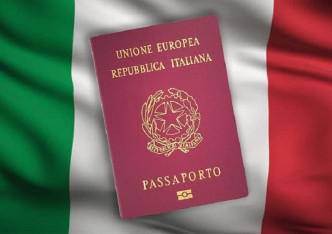I am studying in the third year of the State University of Economics and Technology.I specialize in contractual, economic and corporate law, in particular, I provide consultations and write articles.
The conduct of business by business entities is accompanied by a large amount of information, data related to finances, the internal structure of the enterprise, etc. Of course, for the further successful operation of the business, it is necessary to keep this information confidential and to use legal tools, one of which is a non-disclosure agreement (the so-called NDA). In general, this contract is an agreement between two or more parties under which those persons who have access to confidential information will undertake not to disclose it to third parties in order to protect this information. Analyzing this definition, it is possible to single out several of the most important functions that the concluded NDA contract will perform, namely: protection of information with limited access, which will act as a kind of safeguard against its leakage to third parties, including competitors, protection of data related to industrial property objects ( inventions, utility models, industrial samples), a clear definition of data that can be considered confidential, which will further positively contribute to the protection of this information.
Features of the non-disclosure agreement:
First, it is worth paying attention to the fact that the practice of applying NDA contracts is heterogeneous, and accordingly, the goals pursued by the parties may also differ somewhat. Therefore, there are several types of nondisclosure agreements, namely: a standard agreement as a certain template that is not adapted to specific situations, and therefore can be used in most cases to ensure the protection of confidential information; contract with employees (establishes a ban on the distribution of information with limited access outside the workplace); a contract for potential employees, i.e. one that is concluded in the interview process with applicants for a position, if confidential information is disclosed to them, as well as a contract for subjects of industrial property law, which will protect the projects of inventions that have not yet been completed. Subjects of the NDA contract are persons who possess restricted information and persons who are granted access to such information. Third parties in the contract can be considered those from whom confidential information will be protected. When concluding a contract, you should pay attention to its conditions, namely: the subject matter (clear definition of information, data that is confidential), establishing the scope of the rights and obligations of the parties, liability for non-fulfillment, determining the procedure for settling disputes, the term of the contract. It is important that each provision that will make up the content of the contract should not be subject to double interpretation and should be clearly formulated, because its effectiveness and the ability to further protect the violated rights and interests of the business will depend on the content of the contract. The contract should be concluded in writing.
Liability for breach of NDA terms:
The employee, or another person who is a party to the non-disclosure agreement, will be responsible for violating its terms. The degree of responsibility is established by the parties when concluding the contract. In most cases, the liability condition contains the obligation of the person to whom confidential information is provided to stop its distribution, to compensate for the damage caused by the distribution, as well as for the profit lost by the business entity. The contract can also clearly outline the amount of the fine that will be charged in case of violation. For more comprehensive protection of the employer, or another person who possesses confidential information, in the event of its disclosure, it is necessary to collect evidence that will establish a cause-and-effect relationship between the actions of the perpetrator and the damage that occurred as a result of the information leak. If the disclosure resulted in material losses, then it is necessary to have concrete evidence of the occurrence of such losses. All these subtleties will contribute to success in the court process, because the presence of evidence is a significant factor in the persuasiveness of the legal position.
Legal services for business in case of disclosure of confidential information:
A business lawyer may be needed both at the stage of drafting a contract and in case of non-fulfillment of its terms by the parties. The methods of protection of violated rights and interests provided for by law include legal analysis of the situation, collection of necessary evidence, preparation of procedural documents - and all this, of course, is more effectively implemented with the involvement of an experienced lawyer for business. The lawyer will represent the interests of the client, provide legal protection of business and help achieve the desired results in all possible legal ways.
































